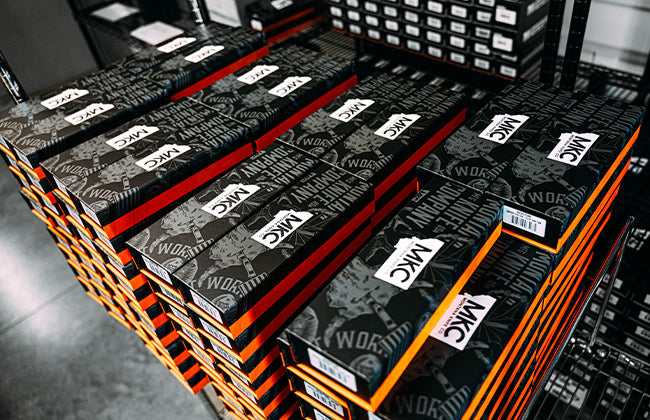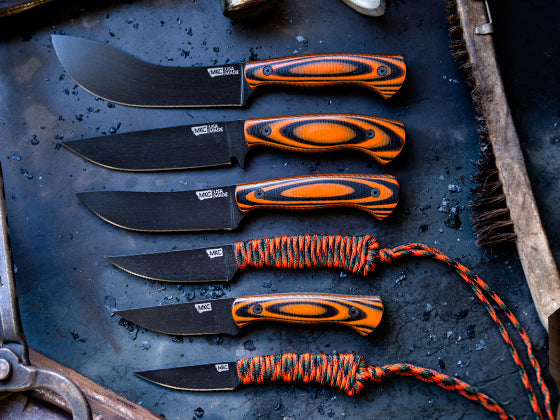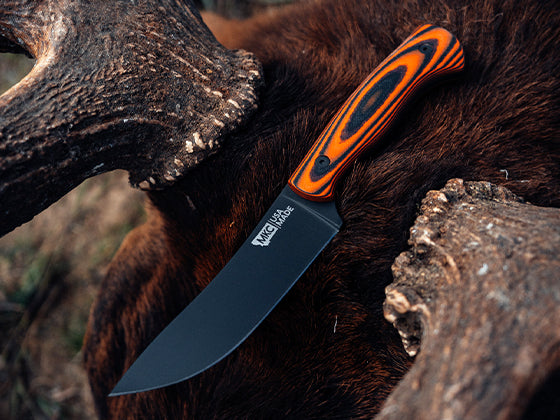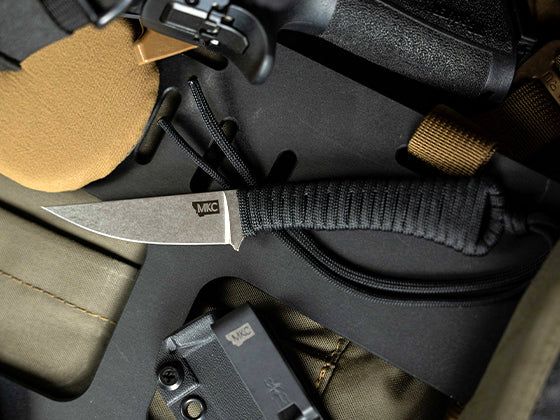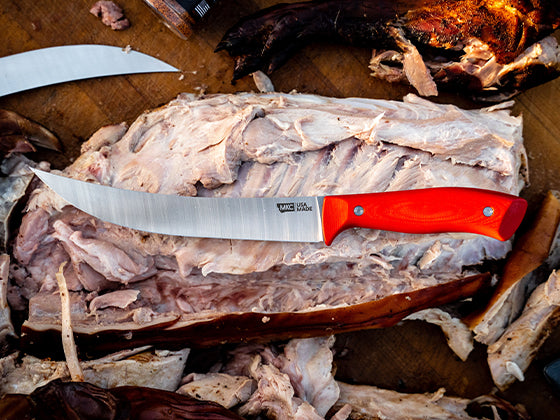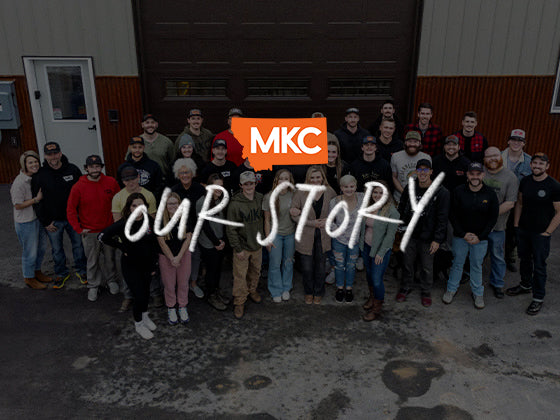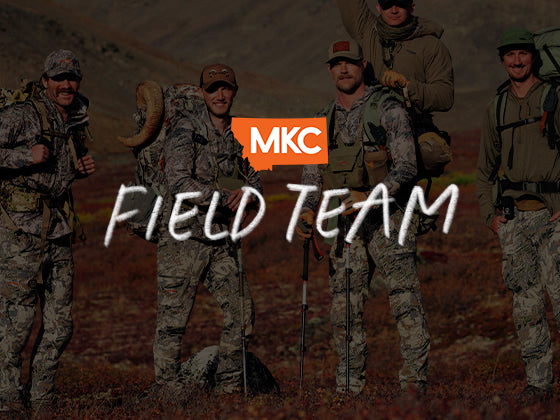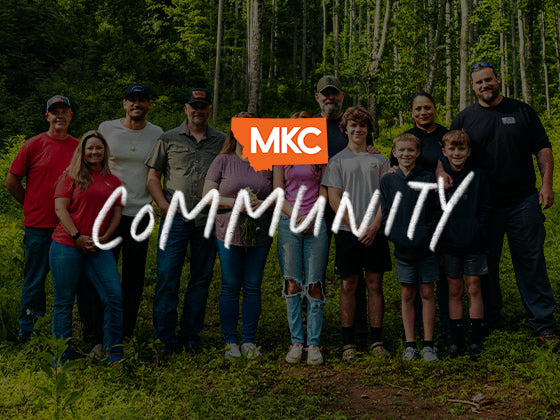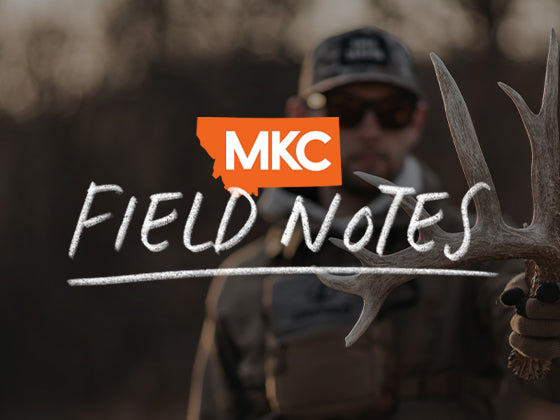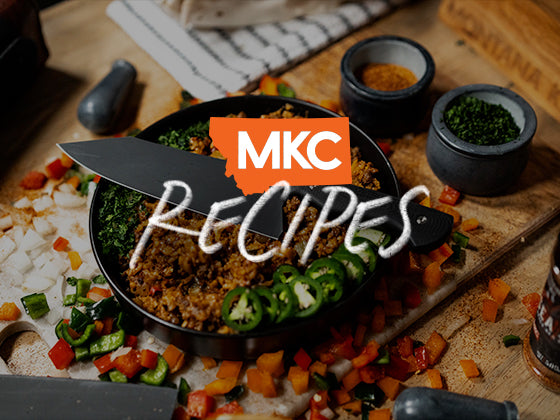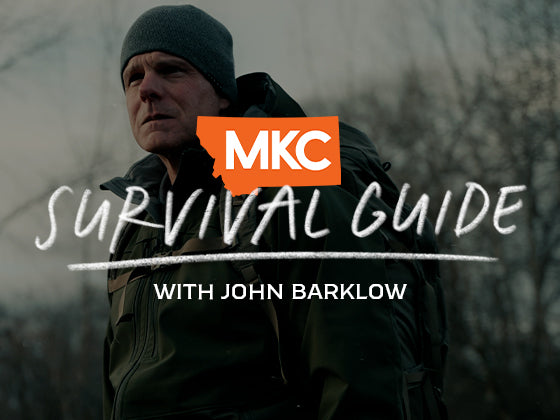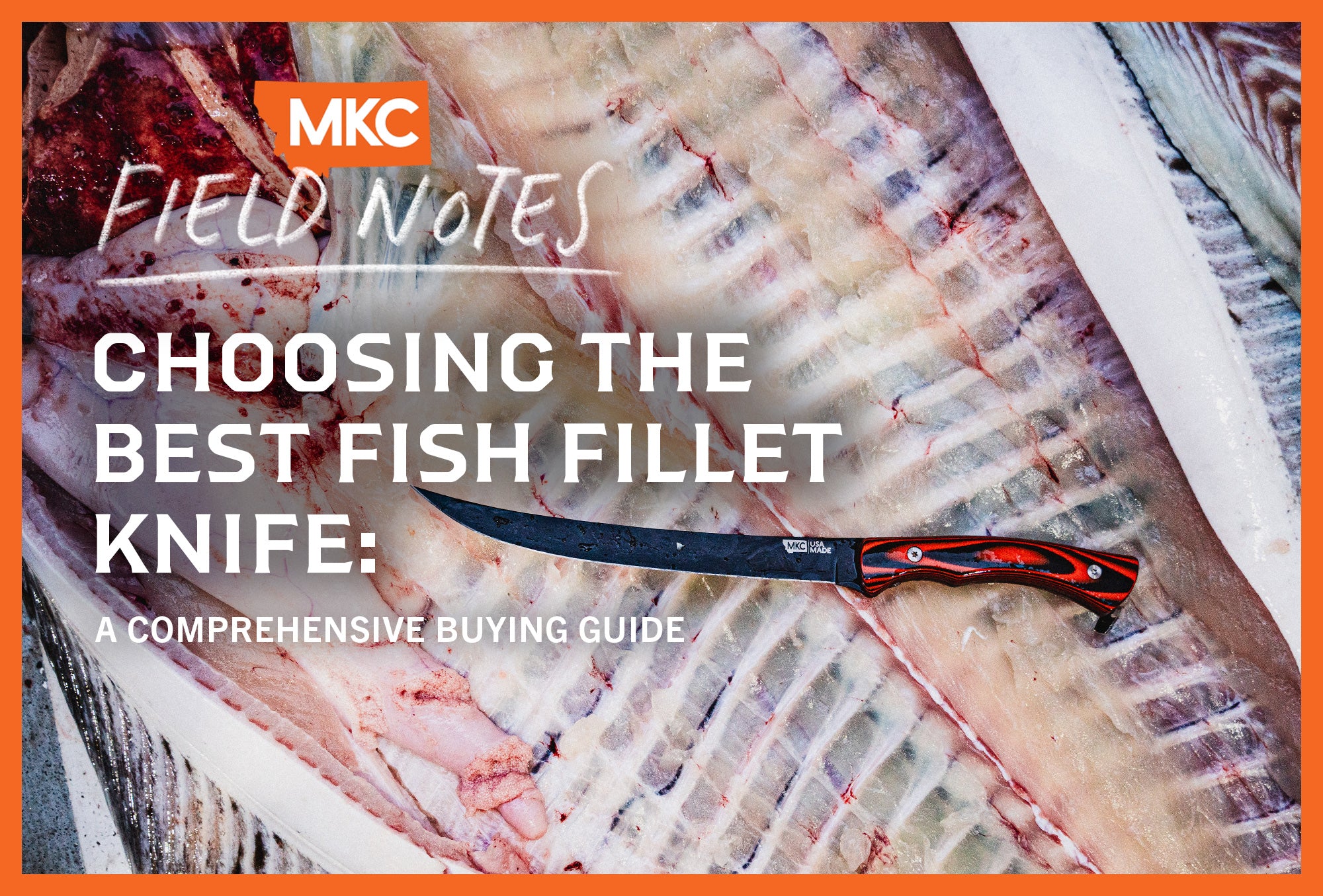I was born five centuries too late.
I would have fit right in 500 years ago as a hunter-gatherer. There’s a simple joy there — a purpose hard-wired into my DNA.
Today, hunter-gatherers don’t exist. At least, not the way they used to. But there are still ways to fulfill that primal purpose.
My favorite is by serving others a delicious meal. Not a dry, unseasoned steak like our ancestors might have eaten, but something I took care to hunt, harvest, season, and prepare for my guests.
For me, hunting and sharing is an art. It’s a form of self-expression. On top of that, it brings people together and strengthens relationships.
Let me pass that joy on to you by sharing some of my favorite tips, tricks, and cooking techniques for wild meats.
Sharing Food With Others
I was 10 or 11 the first time I shared wild-caught food with others. I lobster dove in Hawaii at night, using a Maglite in a Ziploc bag.
Most of us only eat lobster at fancy restaurants and then proceed to sign a sizable check. The experience of gathering the lobsters right off the reef for free and sharing the bounty with others ignited a spark in me.
I’d boil the lobsters with butter, garlic, and salt. It was such a simple preparation, but seeing the joy it brought to my friends was a formative experience.
Nothing is more important than family, friends, and community. Strengthening those bonds is incredibly rewarding, and sharing meals (and time) is my favorite way to do it.
Maximizing Meat Quality and Taste
The first animal I shot was a pig. That’s a big animal for your first kill, and it left us with 50–100 lbs. of meat... which meant I had to get creative. When you have 100 lbs. of the same meat, you can’t just make burgers or tacos for every meal.
Maintaining wild meat’s freshness through preservation and preparation is essential. However, learning how to maximize the meat’s flavor through cooking and seasoning is important, too.
All that effort isn’t just for yourself; it’s for the people you’re sharing with. Plus, you get to share your story too: how you hunted, how you cleaned the meat, how you cooked it, etc. That makes the experience special.
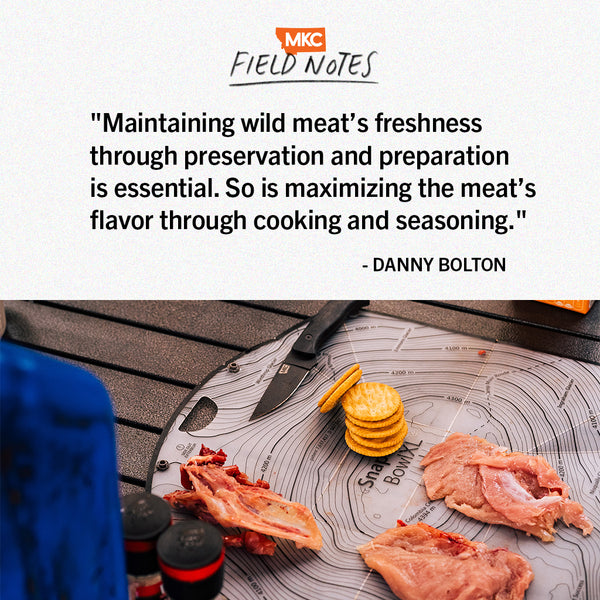
Fundamental Cooking Techniques for Wild Meat
Seasoning
Wild meat is a whole different animal than store-bought meat... literally. The best way to bring out its flavor is with simple salt and pepper. Most people under-salt and over-pepper their meat, so practicing those ratios is important.
I like to keep onions and garlic on hand (or onion powder and garlic powder, in a pinch) for additional flavor. Along with salt and pepper, these flavors are the holy grail. You can use them on anything, including fish, ground meat, roasts, and steaks.
Timing
For steaks and roasts, add some salt at least an hour before cooking. If you salt the meat when it’s browned, you’ve already missed the opportune flavor window. For ground meat, mash it down and then salt it evenly.
Searing
Make sure your pan is hot enough to get a good crust on your meat. That way, you won’t dry it out by cooking it too long, but it’ll still get brown and crispy. Do this with steaks, ground meats, and even roasts. Sear it off before you put it in the slow cooker, and it’ll have much more flavor.
Sharing
One more tip: Don’t put pressure on yourself by inviting a bunch of people over right before you try a new recipe. Try it on your own until you get the hang of it.
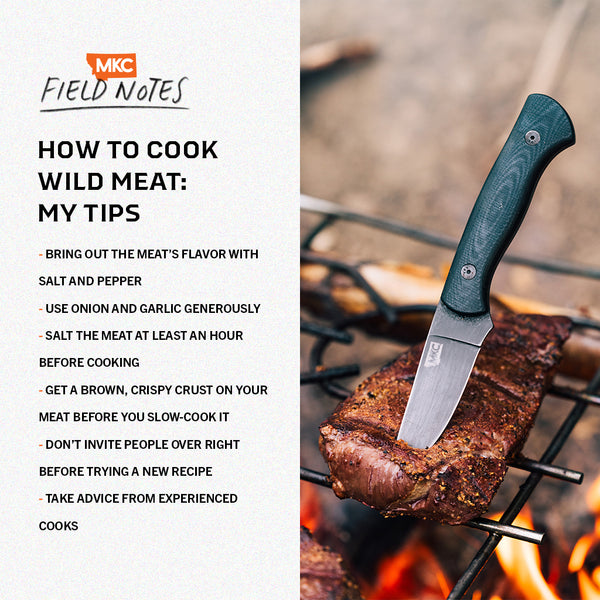
My Advice
If you feel overwhelmed by the prospect of cooking wild meats, especially for others, find a friend or family member who already has the expertise you want. Plan a get-together or two. Offer to bring the meat and be an active part of the cooking process.
Watch and listen to that friend carefully. That’ll give you the edge you need to get started yourself.
When you’re ready to try cooking on your own, put on some good music, pour a cold drink, and give yourself plenty of time. Read your recipe ahead of time, too; make sure you understand it from top to bottom. And, finally, don’t let anything divert you from putting all your energy into that meal.
by Danny Bolton, hunter, father, coffee connoisseur, off-roader, adventurer, and friend of MKC.






















